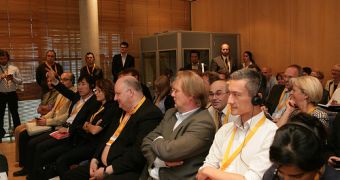Dr. Richard Ford, director of the Harris Institute for Assured Information at Florida Institute of Technology in Melbourne, gave his insight on cybercrime, revealing the challenges posed on modern society and national infrastructures. In a recent interview given to Florida Today, Ford not only talked about the situation of the world when faced with ill-intended hackers, but he also gave advice on how people should protect their everyday devices against possible threats.
When asked about the state of computer security on a wide scale, he stated that “We're in a pretty tough place. We've changed the battlefield. Before, if you wanted to go after a major corporation, you needed assets on the ground or needed to infiltrate somebody. Now, I can fire up my WiFi at a Starbucks and get in and get involved.”
His opinion is that the world should most fear 9/11 scale cyberattacks on the critical infrastructure. Because it is controlled massively by information technology, it would be far easier for terrorists to launch a hit in the virtual environment. He also believes that the advanced state of the infrastructure's dependency on computing technology is hard to undo.
In response to a question regarding the safety of the banking system, he declared that banking systems are well protected, but they're still not perfect.
Dr. Ford has an interesting concept on the freedom of information. According to him, “Information, in the modern world, is power. Information is becoming as important as money. I don't think opening up all information to everybody is a good idea. That's going to cause lives to be lost.”
“On the other hand, concepts like Internet censorship -- saying, 'You're in Company A, therefore, you can't look at Website B' -- that's an interesting area,” he added.
Smartphone and tablet users are advised to be very careful about the applications they install on their devices. Most of these can connect to a bank account or other profiles containing private information, this giving hackers a great opportunity to take over a person's life.

 14 DAY TRIAL //
14 DAY TRIAL //